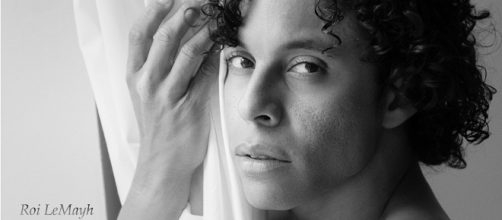Chris Bell is an up and coming performer (known for his work with such artists as Mark Dendy and Eryc Taylor Dance), choreographer and director in New York City who is currently promoting the debut of his first evening-long dance theater work titled “YouthandDeath.” The well-choreographed work was inspired by several deaths in his family, making it extremely personal, and approaches how Chris deals with the reality of his own mortality.
Through spoken word, song, movement, and visuals the play follows five very allegorical characters and watches as they navigate a “stream-of-consciousness” type structure that was inspired by the famous “Seven Stages of Grief,” Chris’ own memories, and the observation of the human condition from youth to death.
Chris Bell recently discussed this work and his experiences in theater via an exclusive interview.
Theater arts, shows, and emotions
Meagan Meehan (MM): What prompted you to get into the arts and why did you gravitate towards dance theater?
Chris Bell (CB): Art has always been in my life starting with church singing in the choir and doing all the plays for Easter and Christmas. I also studied dance, voice and musical theater growing up, I still am a self-described “theater queen” – but I never saw it as a career path until my senior year in high school. I studied dance in college which was more focused on ballet and it was there that I was introduced to pantomime as a standalone art form and that fascinated me.
The ghost of Martha Graham was never far away while I was working on my MFA so narrative became very important to my compositional studies. I was exposed to all sorts of dance-focused interdisciplinary art at the American Dance Festival (ADF) where I was a scholarship student for four years. And, while I was at the ADF, I met one of my personal mentors and great storyteller Mark Dendy with whom I still work with today. All of this focused my personal aesthetic toward dance theater. A bit of a hodge-podge of performing arts with movement heading the team.
MM: “YouthandDeath” is your first full evening show, so how tough was it to write and produce something this long?
CB: Very. But I think that is part of the learning process.
I have been lucky enough to be a part of and to help with other people’s processes but nothing is like doing it for yourself. Working with the dancers and seeing these ideas I was collecting translated onto bodies told me where I needed text and songs – and more importantly, where I didn’t need them.
MM: “YouthandDeath” is based on a lot of personal experiences of yours, was it tough to put these emotions into a theatrical piece?
CB: Yeah, I’m not the kind of person that puts everything out in the space for people. I don’t hide in a closet or anything but I’m also not the type of an individual who puts all my feelings and emotions on my Facebook page. Also, personal experience is just that: personal – and if you don’t connect it to the universal it is not interesting to the viewer.
So, I try to highlight the aspects of my story that everyone can relate to, the economy of youth, losing someone close to you, and so on.
MM: What led to the inclusion of spoken word, song, etc., and how did you choreograph it to make it flow smoothly?
CB: They have always been a part of my life; the songs I use are from my childhood experience. I also think it gives the viewer another entry point into this piece which might help make the work more relatable and breaks up the movement with something else that helps push the story forward. Dance is a form of communication. Most people communicate every day most of the time using multiple forms at once (verbal, written, non-verbal, etc.) so why not do the same thing on stage.
I think people get it when you flow in and out of various communication styles so when I finish one communication idea, I move to another. Movement is usually the connection.
Dancing, charity, and Dixon Place
MM: You are also giving some of the proceeds to charity, so can you tell us a bit about that decision?
CB: Stonewall Community Development Corporation is a great organization which helps LGBTQI+ seniors find affordable, inclusive housing which is a great cause and fits in perfectly with the theme of my work. This is chrisbelldances first evening-length presentation and I wanted to start by giving back. This will be a regular event.
MM: How did you find the Dixon Place venue and do you hope audiences most remember about “YouthandDeath”?
CB: Dixon Place has been a great incubator for many great artists, some of which I have had the pleasure of working with. Through performing there in projects (one if which was commissioned by Dixon Place), teaching in their education program, and attending performances I came to the conclusion that this was the place to start the next phase of chrisbelldances. I hope that audiences remember that life is short but it is chock-full of experiences, a lot of which are shared. So, get out there, talk to someone new and find out what you have in common.
MM: What are your biggest hopes for the future of your artistic dance career?
CB: I would love for chrisbelldances to have an education wing for children and seniors, to do choreographing for the theater (hint-hint: Broadway!) but above all else, I would love to continue growing artistically and making new work.
*****
“YouthandDeath” will be performed at Dixon Place on October 25-27. The premiere performance on October 25 is also a benefit the Stonewall Community Development Corporation. The tickets cost between $18 and $20.


